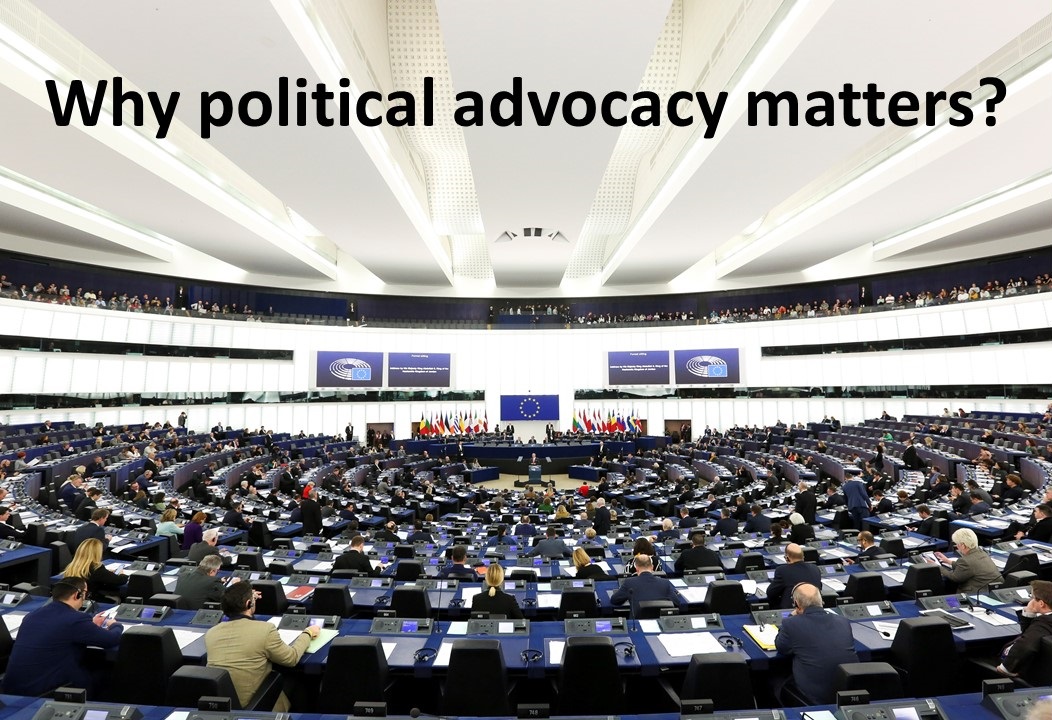Image Source: European Parliament plenary session in Strasbourg. [Fred Marvaux/ © European Union 2020 – Source : EP]
In 1990, David Pearce and Robert Kerry Turner published a book called Economics of Natural Resources and the Environment. In this book, they defined in economic terms a new system based on closed loops of materials that would dramatically reduce the need of resources for the economy and the generation of waste, and therefore reducing the environmental footprint of our society. This new and fresh concept was called the circular economy and it was highly promising, we could build a sustainable society, preserve the environment, and meet our economic needs! However, this book received very little attention. It was not the right time. It was 24 years later, in 2014, when European Commissioner of Environment, Janez Potočnik, picked up this concept.
But why did it take so long for the circular economy to receive attention? And what convinced Dr. Potočnik to pick up the circular economy? And more generally, what makes an idea’s time come?
To answer this question, John Kingdon published a book in 1987 called: Agendas, Alternatives and Public Policies. By publishing this book, Kingdon tried to theorize why people who participate in politics deal with certain issues and neglect others, or in other words how policy agendas are set. To write his book, Kingdon observed the structure of American political institutions, especially Congress, and how members of political parties were fighting to obtain attention on certain issues.
For Kingdon, for an issue to get on the political agenda, three elements, or in Kingdon’s words, three streams, must find each other: first, a policy problem, second, a political solution to that problem, and third, the political context in which the event takes place. However, these three elements are unlikely to come about automatically. These elements have to be aligned with the work of a policy entrepreneur.
A policy entrepreneur is an individual or an organization that is willing to invest resources to push specific proposals or to address selected policy problems. Policy brokers frame conditions as public problems and work to make policy makers accept these frames. The policy broker makes use of knowledge, values, and emotions of other stakeholders to frame problems within their interest to manipulate how they understand reality, to change the policy agenda, and to ultimately provoke policy change. The idea is that a policy entrepreneur would frame the problem in a way that creates a sense of urgency for the political community to address it, and it also promotes his pet solution to address the problem that received the awareness that he created, in a context that would be convenient for the coupling of both the problem and the solution.
Thus, the presence of a skilled policy entrepreneur is critical to put the circular economy at the political agenda. Surely, the presence of a policy entrepreneurship does not guarantee that an issue as the circular economy will make it to the political agenda, neither is the only element needed to promote the circular economy at the policy sphere, but its role is critical to ensure the political viability of the circular economy.
For the case of the circular economy, the policy entrepreneurship of the Ellen MacArthur Foundation was key to promote it at the European agenda. The European Institutions were concerned for a long time on issues as their lack of resources, how to manage waste, and how to protect the environment. The lack of resources was a serious concern for the competitivity of the European Industry, that relies mostly on global markets to obtain raw materials, and environmental protection has been a major political issue for many years already. Within this context, a newly created foundation, the Ellen Macarthur Foundation, started working to raise awareness on the potential of the circular economy to address these problems in one shot. They partnered with regional governments, big corporations, academics, consultancies, and practitioners to promote circular-based solutions and to showcase the potential of the circular economy as an economic policy. After publishing important reports and partnering with key advisors of the European Institutions, the creation of the Resource Efficiency Platform was used as a window of opportunity for the Ellen Macarthur Foundation to participate in it and to promote the circular economy as the best possible solution to resource management. In this platform, the Ellen MacArthur Foundation could engage in direct conversations with the European Commission and with other key stakeholders and as a result, the European Commission published its Circular Economy Package in June of 2014, and although the story of the circular economy at the EU was more complex, the circular economy was in the political agenda and it was an unavoidable topic in the agenda for the following European commissioners.
The policy entrepreneurship of the Ellen MacArthur Foundation was key to put the term circular economy in the economic policy agenda of the EU, and that helped the start of the transition towards a circular economy. However, this circularity transition if far from being completed, and key elements as the right to repair, the promotion of reuse and reduction targets, or policies to mitigate the rebound effect will need the work of skilled policy entrepreneurs to be adopted as well. And this transition will be challenged in the policy sphere by competing policy entrepreneurs who may advocate for production-friendly policies that overlooks the importance of a rigorous approach to the circular economy due to competing interests.

